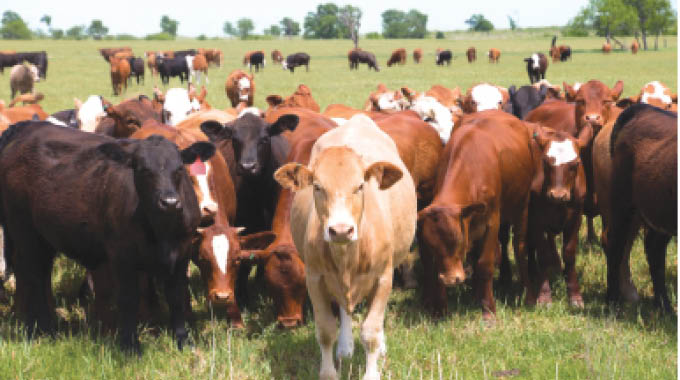
The Sunday News

Mhlupheki Dube
ONE positive outcome of the national lockdown due to the coronavirus (Covid-19) pandemic, is that even the so-called cellphone farmers got to spend a lot of time at their farms.
I get a lot of phone calls these days and even WhatsApp messages from farmers consulting on a number of issues right on the ground. This way it means as a farmer you will get to appreciate a complete picture of what is going on at the farm.
The word farm here is used loosely to refer to wherever you are running your production unit. It is not referring to the farm as we traditionally know it, in terms of individual ownership, paddocks and all.
In this article even your communal home or resettlement home where you are keeping your animals, is your farm. Now that you have spent a good fraction of the 21 days of the national lockdown at your farm, you now know the exact state of your veld.
Is the veld good enough to sustain your animals through the dry season until the onset of the rains?
Is there unnecessary bush encroachment that is shrinking your grazing land? Is there too much thicket that is suffocating the growth of grass for your animals? Is there a proliferation of noxious weeds in your veld? Are you properly stocked or you are overstocked between you and your neighbours? Are the boundary fences still intact?
Were the water sources recharged enough by the rains? How is the relationship of your workers and fellow community members? I could go on and on with questions but the thrust of the matter being that a farmer should spend enough time at his or her farm.
This will help you to have a holistic picture about your enterprise and it could help you to think strategically when addressing some of the challenges you are facing as a farmer. You will get to know what investment you need to budget for, in order to put a permanent solution to the problem of household drinking water.
You will know in exact terms how much you need to invest in preventing straying of your animals. You will even have a better appreciation of the hardships that your workers are facing when you stay at the farm long enough. This drive through approach to farm management gets you to be a stranger to your own investment.
Your animals do not even know you. Remember animals mainly recognise you by your smell and you would need to spend a lot of time with them for them to register your unique smell in their database! You would not even know which direction to go when searching for your animals in the veld. Technically you do not even know your animals and you can even pass them by the road without realising they are yours, especially if they are not branded. Spending your time at the farm and with your animals will make you learn and appreciate some of the traditional practices that community members find important to do and yet at first glance such practices can pass as outright superstitious or simply primitive.
A few months ago, I bought a heifer and took it to the farm. My grandmother was there when we offloaded the heifer into the kraal and she immediately went around the heifer taking scoops of manure of the kraal spraying it all over the body of the heifer. One guy present, causally remarked “gogo lawe ngento zakho zakudala” (granny, you and your traditional practices). Apparently, this simple treatment is meant to introduce the newcomer into the kraal. This prevents rejection by other animals and save the newcomer from being chased around the kraal and being bullied by other animals.
It is a practice that one can easily dismiss as nothing more than a superstitious act but a careful application of the mind will reveal that the practice is actually scientific. As alluded to above, animals use their sense of smell to recognise one another.
This is why your cow will lick and sniff around its newly born calf. It is merely registering the calf in its database of “contact” using the unique smell.
The smell of the animal is its identification to other animals and if your identification is not in our database you are not one of us. Therefore, by throwing manure from the kraal all over the new comer, you are making the new comer smell like members of the kraal and hence she will be accepted as one of the residents of that kraal!
I have written before about the importance of ethnoveterinary science and the need for it to be documented. I would like to think that such practices can find space in such a publication. It is my hope that livestock farmers really utilised the time granted to them by the national lockdown, especially those farmers that are formally employed and hence do not ordinarily get enough time to spend at their farms.
Uyabonga umntakaMaKhumalo.
Feedback [email protected]/ cell 0772851275



